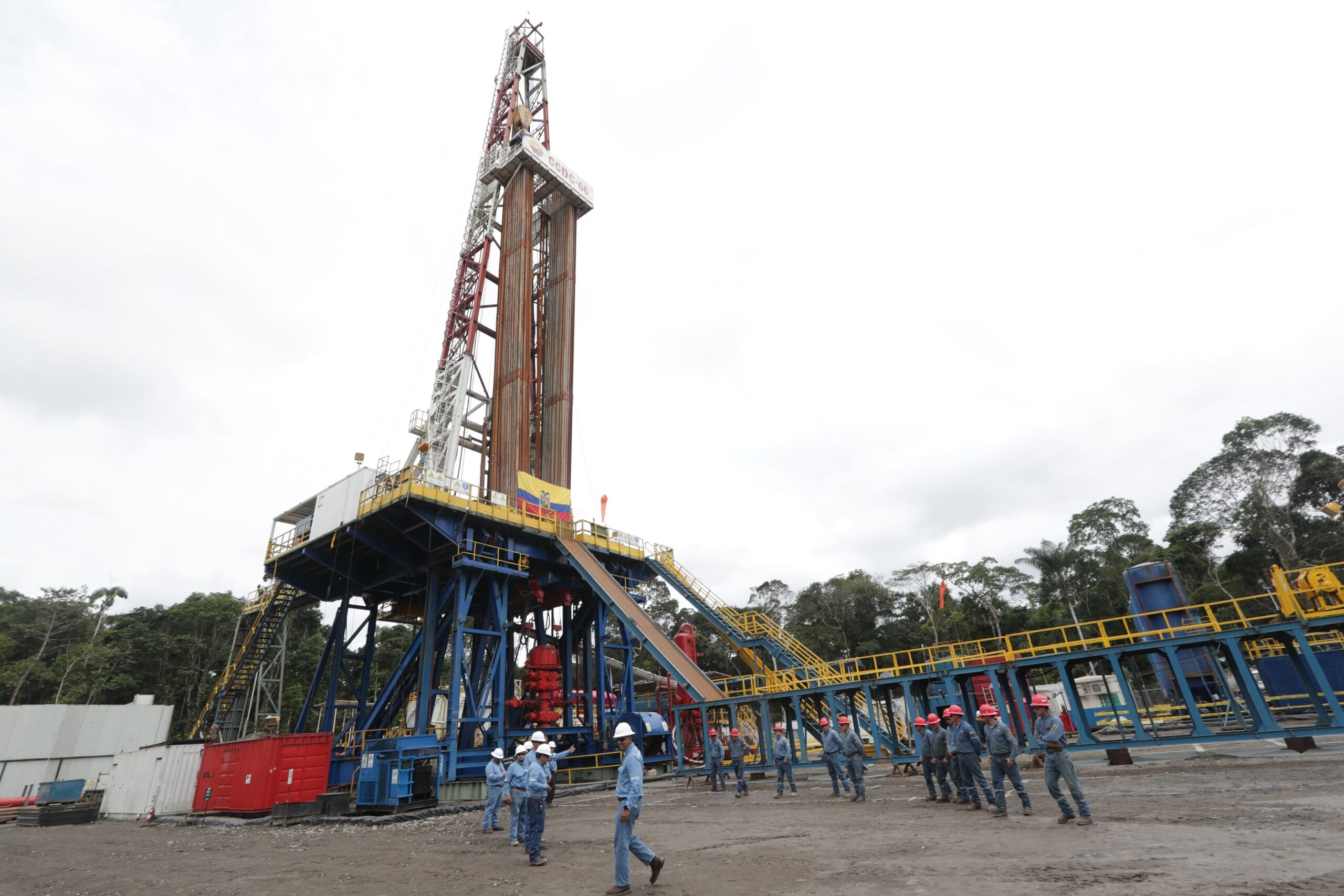Around 60% of voters said oil reserves in the Yasuní National Park should be left in the ground in binding vote
Citizens of Ecuador voted against extracting oil from large reserves found within a national park in the Amazon rainforest in a historic referendum.
In a first-of-its-kind poll, 59% of voters decided to keep oil in the ground in the Yasuní National Park, one of the largest biodiversity hotspots on the planet and home to indigenous people in voluntary isolation.
Following Sunday’s result, Ecuador’s state-0wned oil company, Petroecuador, has roughly a year to halt its operations in an area that currently produces more than 55,000 barrels of crude oil a day.
Yasunidos, the environmental group behind the referendum, has described the result as “a historic victory for Ecuador and for the planet” in a tweet.
¡Hoy hicimos historia!
Esta consulta, nacida desde la ciudadanía, demuestra el mayor consenso nacional en Ecuador. Es la primera vez que un país decide defender la vida y dejar el petróleo bajo tierra.
¡Es una victoria histórica para Ecuador y para el planeta!#SÍalYasuní pic.twitter.com/RBvHzkozxp
— YASunidos (@Yasunidos) August 21, 2023
Their success marks the end of a decade-long battle with the government which argued such an outcome would have “catastrophic” effects on the economy.
Crude oil remains Ecuador’s biggest export, but its contribution to the country’s gross domestic product declined by nearly a third between 2011 and 2021.
The referendum was held during the first round of the country’s presidential election, in which leftist candidate Luisa González took the lead and headed to a second round against centrist Daniel Noboa.
Residents of Quito, Ecuador’s capital, also voted on whether to keep mining activities in the Chocó Andino reserve, another biodiversity hotspot located 40km from the city. 69% of voters rejected mining in this area, which is rich in gold and copper.
A long fight
For decades, Yasuní has been threatened by extractive industries. According to reports from the Andean Amazon Monitoring Project, at least 689 hectares have been deforested in the Yasuní, most of it, by the oil industry. Experts warn that tree loss, alongside frequent oil spills, threatens the unique biodiversity of the Amazon.
On Sunday voters were asked specifically about the Ishpingo-Tambococha-Tiputini (ITT) oil project, also known as Block 43, located on the eastern edge of the park.
Efforts to keep Yasuní oil in the ground date back to 2007 when then-president Rafael Correa appealed to wealthy countries for $3.6 billion in exchange for not going ahead with drilling in the area.
But six years later, as international donors failed to deliver the money required to offset lost revenue, Correa scrapped the initiative and gave the green light to oil operations in the Amazon rainforest.
Economic argument
In the same year, activists from Yasunidos began campaigning for a public vote. They quickly collected over 750,000 signatures – many more than the number required to trigger a referendum – but the Correa administration voided half of them. Following an extensive legal process, Ecuador’s top court ruled last May to include the vote in the upcoming presidential election.
While the battle raged on, drilling in the Yasuní went underway. In 2016 Petroecuador began extracting crude from Block 43, which now contributes to around 12% of the country’s oil output.
Satellite images show the development of oil production facilities in the Yasuní National Park since drilling began in 2016
During the referendum campaign Ecuador’s outgoing administration argued that an oil drilling ban would have catastrophic consequences for the country’s economy. Fernando Santos, the then-energy minister, said Ecuado
Read More








Never miss a story. Join us on social.